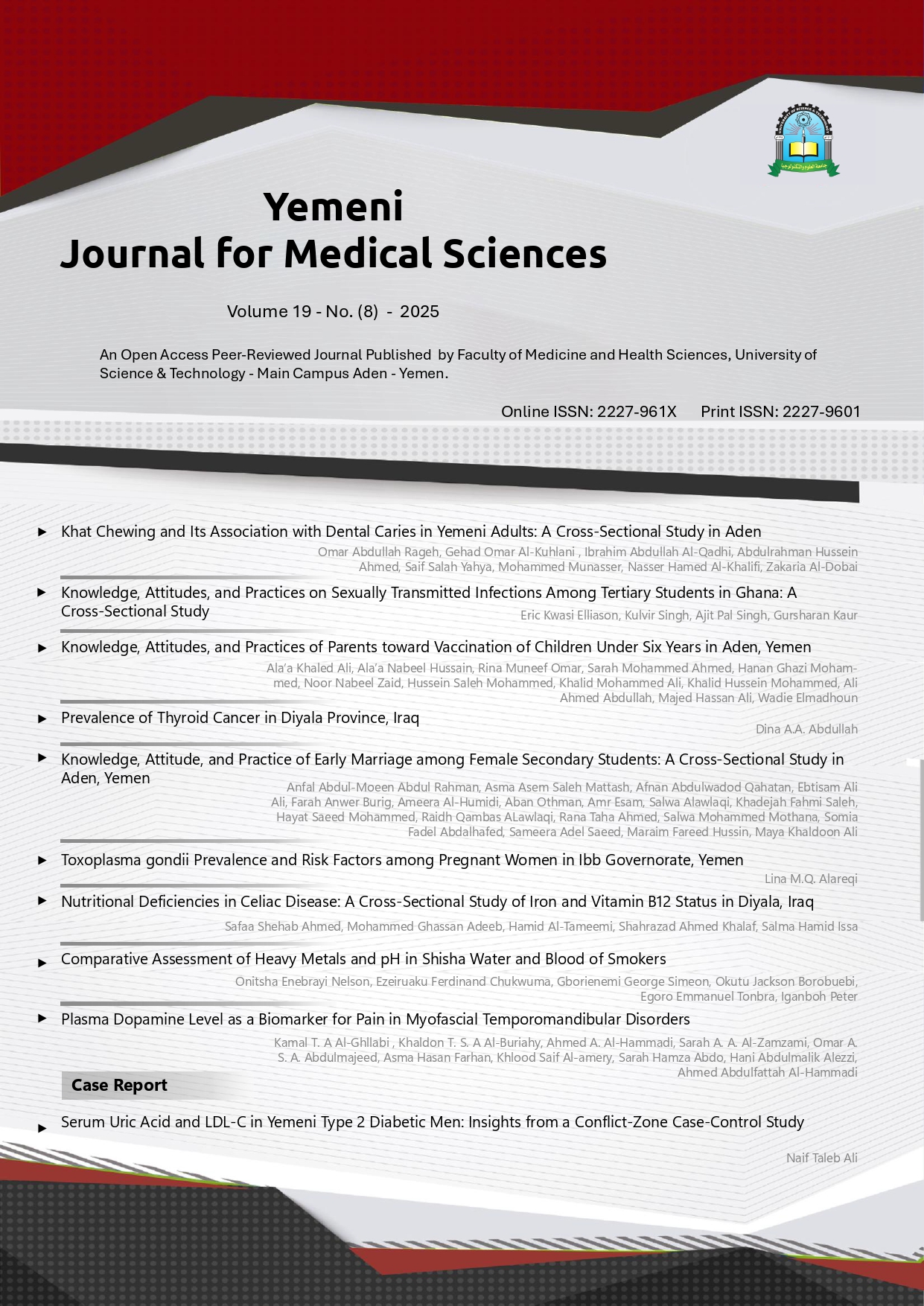Toxoplasma gondii Prevalence and Risk Factors among Pregnant Women in Ibb Governorate, Yemen
##plugins.themes.bootstrap3.article.main##
Abstract
Background: Pregnant women and their fetuses are especially vulnerable to toxoplasmosis.
Objective: To assess the prevalence of Toxoplasma gondii and related risk factors in pregnant women at Ibb Governorate, Yemen.
Methods: A cross-sectional study with 415 pregnant women was carried out in Yemen's Ibb Governorate between June and October 2024. Anti-T. gondii antibodies were detected in serum samples by the enzyme-linked immunosorbent assay (ELISA). Data on potential infection risk factors linked to the infection were gathered by the administration of a questionnaire.
Results: The research found an overall seroprevalence of anti-T. gondii antibodies (IgG and/or IgM) of 55.9% (232/415; 95% Confidence Interval: 50.9%–60.9%). Among the participants, 45.0% (187/415) tested positive for IgG, 3.4% (14/415) for IgM, and 7.5% (31/415) for both. Binary regression analysis revealed significant risk factors for infection, including increasing age (Adjusted Odds Ratio [AOR] = 1.88; P = 0.006), history of blood transfusions (AOR = 2.03; P = 0.012), cat presence in the household (AOR = 1.86; P = 0.006), history of miscarriage (AOR = 2.76; P = 0.000), and history of giving birth to a baby with defects (AOR = 5.53; P = 0.002).
Conclusion: These findings indicate a high rate of toxoplasmosis in prenatal medical care clinics in Ibb Governorate, Yemen, underscoring the need for routine screening and health education on transmission modes.
##plugins.themes.bootstrap3.article.details##
Toxoplasmosis; Anti-Toxoplasma gondii Antibodies; Pregnant Women; Risk Factors.

This work is licensed under a Creative Commons Attribution 4.0 International License.
YJMS publishes Open Access articles under the Creative Commons Attribution (CC BY) license. If author(s) submit their manuscript for consideration by YJMS, they agree to have the CC BY license applied to their work, which means that it may be reused in any form provided that the author(s) and the journal are properly cited. Under this license, author(s) also preserve the right of reusing the content of their manuscript provided that they cite the YJMS.








